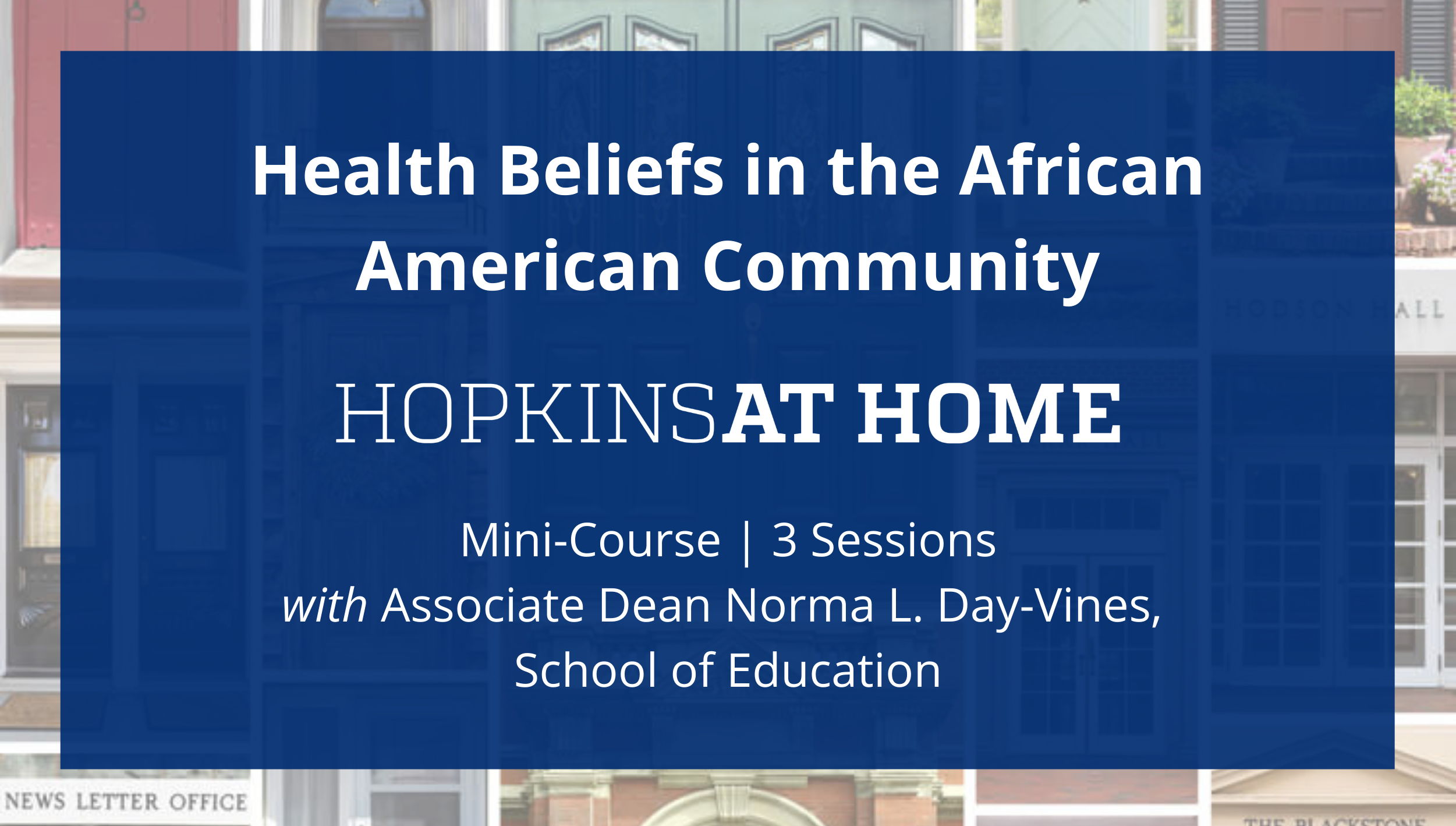Health Beliefs in the African American Community

Brought to you by Hopkins at Home
![]() Follow us on Twitter to join the conversation: @HopkinsatHome, #HopkinsatHome
Follow us on Twitter to join the conversation: @HopkinsatHome, #HopkinsatHome
May 11, 2022 - May 25, 2022 (3 sessions)
Wednesdays, 6:00 - 7:00 PM ET
This three-week mini-session explores health care beliefs within the African American community. Topics include contextual information about the vast heterogeneity that characterizes the African American experience. That is, African Americans are varied in their racial, ethnic, religious, social class, gendered and sexual identities and cannot be essentialized or reduced to narrow stereotypes. African American attitudes towards health and wellness will be examined in both its historic and contemporary manifestations.
A substantial amount of scholarship addresses the suspicion African Americans harbor toward healthcare. Much of this literature points to the Tuskegee experiment as a point of departure for understanding racialized oppression with health care systems; yet, mounting evidence documents a pattern of medical abuse dating back to the antebellum period. Scholars have unearthed similar patterns of cultural mistrust within the mental health profession, particularly within the annals of American psychiatry. These medical abuses are synchronized with settler colonialism, eugenics, legal precedents and the carceral state. Despite atrocities endured by many African Americans at the hands of medical and mental health care practitioners, African Americans have drawn on sources of resilience and resistance as they strive for health and wellness. Implications for culturally responsive medical and mental health care will be discussed.
